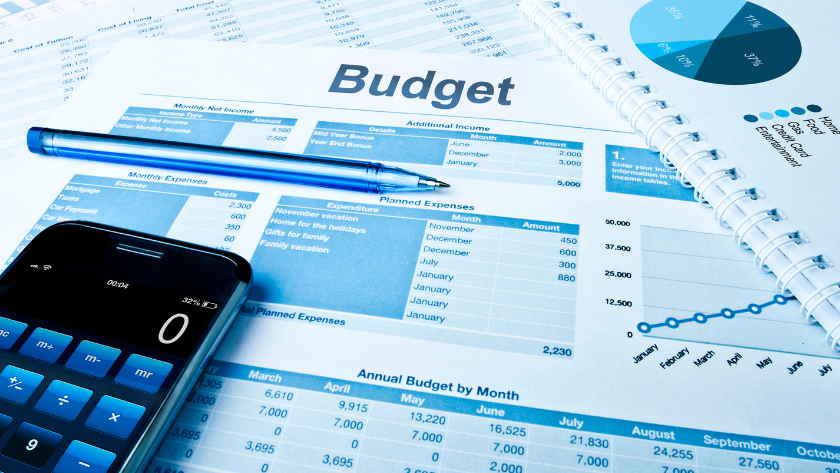I have never understood why the word “budget” has such a negative connotation in society today. We work hard for our money, so we should want to get the most out of every dollar we earn. Maybe it is a lack of understanding of what a budget is or should be. Paying attention to your finances isn’t only something for people who are trying to get out of debt. It is really hard to succeed at anything in life if you are not paying attention to it. Anybody who wants to win with money should be budgeting.
- Know Why You Are Budgeting
- Budget Existing Money Before You Spend It
- Set Goals And Track Your Progress
- Budget Your Necessities First
- Budget Your Savings
- Utilize Sinking Funds To Level Out The High And Low Spending Months
- Eliminate High Interest Debt
- Be Realistic
- Don’t Hide Your True Expenses
Know Why You Are Budgeting
Every financial journey needs to start with a “why?” Why do you want to start on this financial journey? Why do you want to pay off debt? Build wealth? This will be the MOST IMPORTANT step to your financial journey. If you have a strong enough motivation to reach your goal, there is little to nothing that will stop you from reaching your goals. What do you want more than anything else? Start With Your Why
Budget Existing Money Before You Spend It
There are many different approaches and methods to budgeting. We just believe everyone should budget. So at the end of the day whatever method works best for you is the best budgeting method. The approach to budgeting we teach and recommend is zero-based budgeting with sinking funds. You should take all of your existing spending money that is not already allocated and allocate it towards your budget categories. We do not budget future dollars, and we do not budget based on a guesstimate of what we think we will earn this month. We then wait until we receive new income and repeat the process. How Ploutos Budget is Different
Set Goals And Track Your Progress
We all have financial goals we want to achieve and the best way to do that is to write them down and track your progress. We have all heard of the S.M.A.R.T. goal setting method and this method can be applied to your financial goals as well.
Specific – What is the money for?
Measurable – How much money do we want to have in this category?
Attainable – Is this realistic based on the amount of money you make?
Relevant – Does this align with our priorities? Is it worth saving for?
Timely – When will you meet this goal?
Budget Your Necessities First
Most of us will not have enough money when starting to be a month ahead in our budgeting and that is ok. Our goal is to be budgeting for next month with this month’s dollars, but that will take time to work up to. Whether budgeting for this month or next month the first categories that should always get the first dollars are our basic necessities. Food, shelter, utilities, basic clothing, and basic transportation.
Budget Your Savings
After you cover your basic necessities you should be allocating money towards your short term and long term savings. If you don’t allocate money for savings when you first get paid there won’t be anything left at the end of the month.
Utilize Sinking Funds To Level Out The High And Low Spending Months
Not all months are equal, and we spend more money in some than others. Depending on how you are paid you also may make more money in some months than others. Using sinking funds helps us take the dollars we make in the month we make more or spend less and allocate them to when they will be needed. Plan ahead for big spending months. Don’t wait until December to plan for Christmas. What Are Sinking Funds and How Do They Make Budgeting Easier
Eliminate High Interest Debt
Don’t get complacent with monthly interest charges as they can really add up. Interest is a powerful tool, so wield it in your favor. Don’t let high interest charges, late penalties, and other fees steal your hard earned money. Interest earned is a reward; interest paid is a penalty.
Be Realistic
Be realistic in your monthly budget goals. Don’t budget to spend more than you make in a month. If you are constantly going over on a budget category every month then you probably need to raise the amount you are contributing to it. There is nothing wrong with having to move money between budget categories and it will take a couple of months of budgeting to really dial in the amount of money you need each month for a category.
Don’t Hide Your True Expenses
A common mistake people make is making their budget categories too broad. While we don’t think you necessarily need to be super detailed with every expense you do want to avoid the trap of hiding your true expenses. A good example we see regularly is people combining their dining category and their grocery category with an all encompassing “Food” category. While at first this may seem like a good idea and a great way to see how much your household is spending on food for the month it doesn’t give a real clear picture of what is going on. A dollar at a grocery store goes a lot farther than a dollar at a restaurant. We love going to restaurants (and avoiding having to do the dishes) and that is why you should have a “Dining/Restaurants” category, so that you have dollars set aside for it. Don’t hide your true expenses plan for it.
Starting to budget can be overwhelming for new budgeteers as there can be so much to learn and know. Just take it one day at a time and stick with it as it can be very rewarding and will help you win with money.
George Doran, Arthur Miller and James Cunningham in their 1981 article “There’s a S.M.A.R.T. way to write management goals and objectives”





